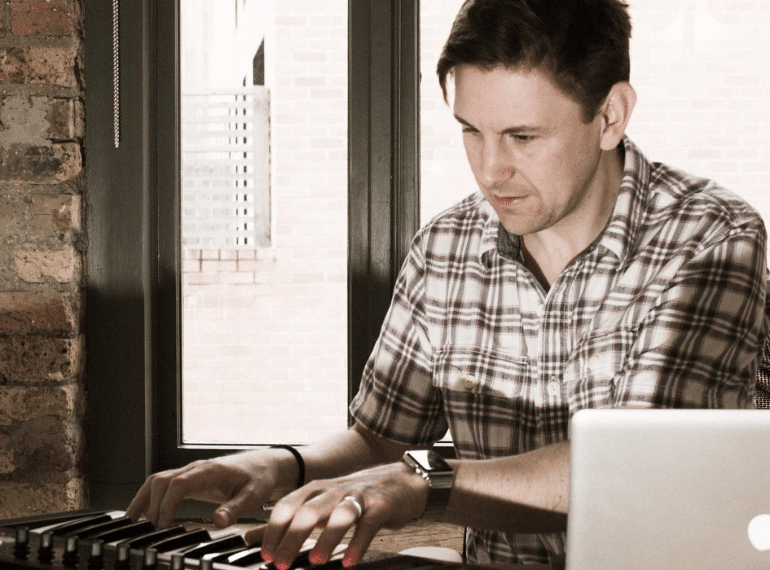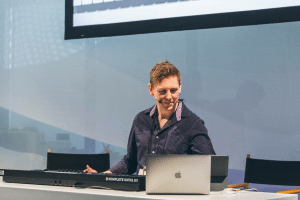
Alumnus and former QE teacher Tim Adnitt is now firmly established with a multinational music technology company, while continuing to work very successfully as a record producer and sound engineer.
Tim (OE 1988–1995) is a Product Owner for Native Instruments, leading teams in London and Berlin for the German company, which creates software and hardware for computer-based audio production.
He has also worked on several award-winning albums, including Saluting Sgt. Pepper by British musician Django Bates, in collaboration with Frankfurt Radio Big Band and Eggs Laid By Tigers. This creative re-imagining of the Beatles’ seminal LP was named The Times & The Sunday Times 2017 Jazz Album of the Year. As a composer, Tim has written music for the Royal Opera House, the Royal Shakespeare Company and the Globe Theatre.
 His work centres on Komplete Kontrol, the award-winning keyboards used by many of the world’s leading composers and producers including Stevie Wonder, Herbie Hancock, Jean-Michel Jarre, Hans Zimmer, Junkie XL, John Powell, Noah Shebib, Jacob Collier and Justin Kauflin.
His work centres on Komplete Kontrol, the award-winning keyboards used by many of the world’s leading composers and producers including Stevie Wonder, Herbie Hancock, Jean-Michel Jarre, Hans Zimmer, Junkie XL, John Powell, Noah Shebib, Jacob Collier and Justin Kauflin.
He played a key role in the creation of Native Instruments’ Native Kontrol Standard (NKS), the de facto industry standard for browsing and hardware control of virtual instruments and effects.
Tim is known as an advocate for accessibility in music technology, working to promote a change in mindset across the industry towards musicians and producers with disabilities. He co-designed Komplete Kontrol’s accessibility features for visually-impaired musicians. Tim has spoken at numerous events and conferences around the world on this topic, including: last year’s Audio Developer Conference in London; Moogfest 2018 in North Carolina, USA (where he co-presented a workshop with Stanford University’s Thinking Matters Fellow, Tiffany Naiman), and Berklee College of Music Accessibility Conference 2018 in Boston, USA.
He is supported at Native Instruments by fellow Old Elizabethan and former Music Technology student Adil Ghanty (2003-2010), who joined the company in summer 2015 – an appointment that is “testament to the strong tradition of Music and Music Technology at QE,” Tim says.
After leaving QE, Tim read Music at City, University of London, before going on to take a Master’s degree in Composition. Tim taught Music Technology at the School between 2005 and 2014.
